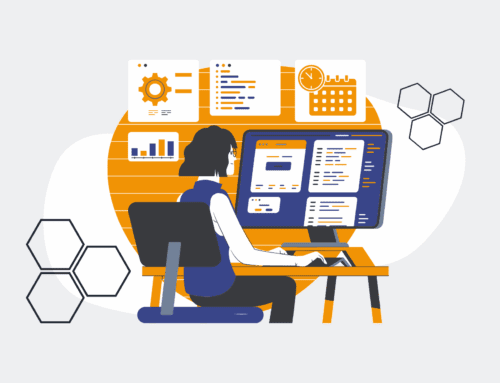Unlocking Personalized Employee Experiences Through HR Workflow Automation
In today’s dynamic business landscape, where talent acquisition and retention are paramount, the concept of a “one-size-fits-all” employee experience is rapidly becoming a relic of the past. Employees, much like customers, expect personalized interactions that acknowledge their unique needs, career aspirations, and work-life balance requirements. For HR departments, delivering such bespoke experiences manually is not just challenging; it’s often impossible without overwhelming an already stretched team. This is precisely where HR workflow automation steps in, transforming generic processes into truly personalized journeys.
The Imperative for Personalization in the Modern Workforce
The shift towards personalization isn’t merely a trend; it’s a strategic imperative. A highly personalized employee experience fosters greater engagement, boosts productivity, and significantly improves retention rates. When employees feel understood and valued, they are more likely to be loyal, innovative, and advocate for their organization. However, achieving this level of individual attention traditionally demanded substantial human resources, making it impractical for many growing companies. The challenge lies in scaling personalization without scaling the HR workload exponentially.
From Onboarding to Offboarding: Automating the Employee Life Cycle
HR workflow automation offers a powerful solution by intelligently streamlining the repetitive, administrative tasks that consume HR teams, freeing them to focus on high-value, strategic initiatives like employee development and culture building. More importantly, automation can be the engine for delivering tailored experiences across the entire employee life cycle:
- Personalized Onboarding: Imagine an onboarding process where new hires receive custom welcome messages, relevant training modules based on their role and prior experience, and automated introductions to key team members – all before their first day. Automation ensures essential paperwork is handled efficiently, allowing HR to focus on integrating the new employee culturally and strategically.
- Tailored Learning & Development: Instead of generic training catalogs, automation can track an employee’s performance, skill gaps, and career aspirations to recommend relevant courses, certifications, or mentorship opportunities. This proactive approach ensures continuous growth and alignment with organizational goals.
- Performance Management & Feedback: Automated reminders for check-ins, performance review cycles, and continuous feedback loops can be customized for each manager-employee pair. This ensures timely and relevant conversations, moving away from annual, often impersonal, assessments.
- Employee Wellness & Recognition: From automated surveys gauging employee sentiment to personalized suggestions for wellness programs or recognition alerts for milestones, automation can proactively support employee well-being and foster a culture of appreciation.
The Strategic Advantage: Beyond Efficiency to Engagement
While the efficiency gains from HR automation are undeniable – reducing human error, accelerating processes, and saving countless hours – the true strategic advantage lies in its capacity to elevate the employee experience. By taking over the transactional, automation empowers HR professionals to be strategic partners, focusing on the human element that truly drives organizational success.
At 4Spot Consulting, we understand that building these intelligent workflows requires a strategic-first approach. It’s not just about implementing a new tool; it’s about understanding your existing processes, identifying bottlenecks, and designing an integrated system that aligns with your business objectives. Our OpsMap™ diagnostic, for instance, helps uncover these critical inefficiencies, allowing us to blueprint a path toward personalized HR experiences through robust automation.
We leverage powerful platforms like Make.com to connect disparate HR systems, CRMs like Keap, and other operational tools, creating a “single source of truth” for employee data. This interconnectedness allows for the dynamic delivery of personalized communications, resources, and support, transforming the employee journey from fragmented to holistic.
Building a Future-Ready HR Ecosystem
The journey towards deeply personalized employee experiences is an ongoing evolution, not a one-time project. It requires a commitment to continuous improvement, leveraging data insights to refine automated workflows and adapt to changing employee needs. Companies that embrace HR workflow automation are not just streamlining their operations; they are fundamentally reshaping their relationship with their workforce, cultivating a more engaged, satisfied, and ultimately, more productive environment.
For high-growth B2B companies, the investment in HR automation yields significant ROI, not only in cost savings and error reduction but in the invaluable currency of human capital. By empowering HR to personalize at scale, organizations can ensure that their most valuable asset – their people – feel seen, heard, and supported throughout their entire tenure.
If you would like to read more, we recommend this article: Strategic HR’s New Era: The Indispensable Role of AI Automation Consultants







